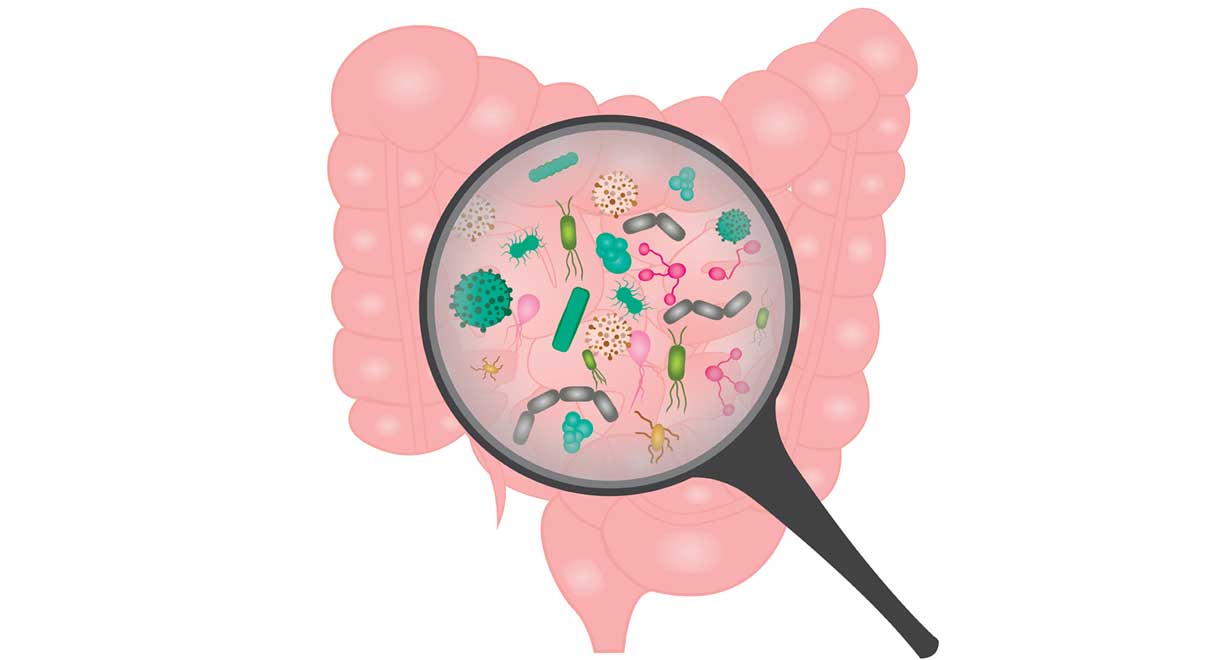Anxiety may be coming from your gut
By naturopath Margaret Jasinska
The state of your gut health has an enormous bearing on your mental and emotional wellbeing. The types of bugs that live in your gut, as well as their quantity and location can play a large role in how calm or anxious you feel. Small Intestinal Bacterial Overgrowth (SIBO) is a common gut disorder. Recent research shows SIBO can interfere with mental health, raising the risk of anxiety. Fixing the gut can lead to a calmer mood.


What is Small Intestinal Bacterial Overgrowth (SIBO)?
SIBO means an increased number and/or abnormal types of bacteria in the small intestine. The condition encompasses yeast overgrowth such as Candida as well, so really it’s microbial overgrowth. There is not supposed to be a lot of bacteria in your small intestine. This part of your intestine is designed for nutrient digestion and absorption. Most of the bugs in your gut are supposed to live in your colon (large intestine).
Potential symptoms of SIBO
The majority of the symptoms are digestive, however, as you can see in this list, SIBO can adversely affect several parts of your body:
- Bloating
- Abdominal pain after eating
- Nausea
- Gas (burping or flatulence)
- Constipation
- Fatigue
- Diarrhoea
- Muscle cramps, spasms or restless legs syndrome. Muscle cramps and spasms are usually caused by magnesium deficiency. Iron deficiency and vitamin E deficiency are strongly correlated with restless legs syndrome as well.
- Joint pain
- Fibromyalgia
- Fatigue
- Multiple food sensitivities
- Inflammation of the liver (raised liver enzymes)
- Skin problems, including eczema, acne rosacea, rashes or itchy skin.
- Strong sugar or carbohydrate cravings. The excess bacteria and yeast in the small intestine want to be fed. They need carbohydrate in order to survive, so you’re likely to have big cravings for these foods.
- Anxiety
- Brain fog
Leaky gut is a typical result of SIBO
The lining of the small intestine is fragile. It is not designed to tolerate large numbers of microbes. That means the cell lining of the small intestine can get damaged, leading to increased permeability of the intestinal barrier. This condition is known as leaky gut. Leaky gut can amplify SIBO symptoms and give rise to food allergies or sensitivities, autoimmune conditions, inflammation and lowered immunity.
What causes SIBO?
How do the microbes end up in your small intestine? They can either travel upwards from your colon, or downwards from your mouth. The far more common scenario is where the bugs travel up from your large intestine. The bacteria present in SIBO are not pathogenic bacteria, like the ones that cause gastroenteritis or food poisoning. The problem is, the bacteria are just in the wrong place. Having too much bacteria here can make you feel bloated and it can cause symptoms of irritable bowel syndrome such as abdominal cramps, gas, diarrhoea or constipation. New research has shown that many cases of irritable bowel syndrome are actually caused by SIBO. BactoClear capsules are a natural herbal antimicrobial that can help with medically diagnosed irritable bowel syndrome.
Most people with SIBO do not produce sufficient digestive enzymes or bile. This means food doesn’t get digested thoroughly and scraps are left behind, encouraging microbial growth.
Can SIBO cause anxiety or depression?
Studies have shown that having an altered gut microbiome can be a cause of anxiety or depression. Specific research even suggests that certain strains of bacteria promote poor mental health when present in high numbers. Having an inflamed gut, or dysbiosis in the gut (imbalance between good and bad bugs) can lead to increased anxiety.
Diet changes, antimicrobial remedies and healing the gut lining are all necessary when overcoming SIBO. It can be a stubborn condition to treat and long term adherence to these strategies is usually necessary. There is detailed information on how to correct SIBO and other gut bug problems in the books Healing Autoimmune Disease: A plan to help your immune system and reduce inflammation and Healthy Bowel, Healthy Body.
References:
Clapp, M., Aurora, N., Herrera, L., Bhatia, M., Wilen, E., & Wakefield, S. (2017). Gut microbiota’s effect on mental health: the gut-brain axis. Clinics and practice, 7(4), 131-136.
Pimentel, M., Saad, R. J., Long, M. D., & Rao, S. S. (2020). ACG clinical guideline: small intestinal bacterial overgrowth. American Journal of Gastroenterology, 115(2), 165-178.
Quigley, E. M., Murray, J. A., & Pimentel, M. (2020). AGA clinical practice update on small intestinal bacterial overgrowth: expert review. Gastroenterology, 159(4), 1526-1532.
Leite, G., Morales, W., Weitsman, S., Celly, S., Parodi, G., Mathur, R., … & Pimentel, M. (2020). The duodenal microbiome is altered in small intestinal bacterial overgrowth. PloS one, 15(7), e0234906.









Leave A Comment